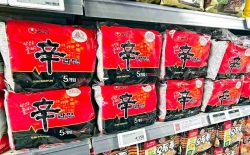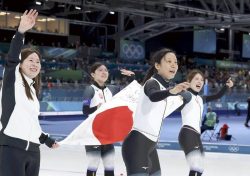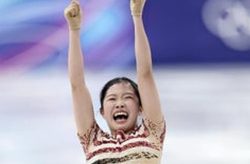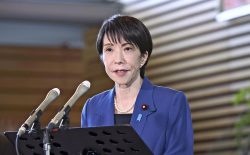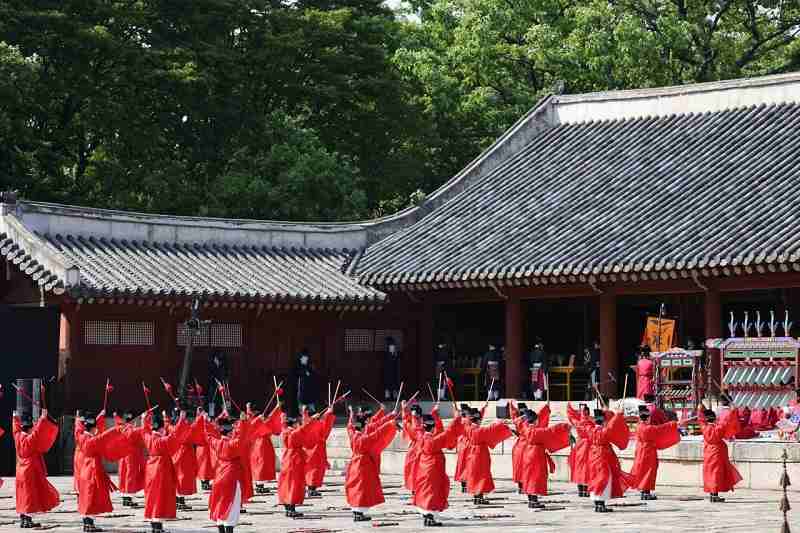
Dancers perform during the annual royal ancestral rite ceremony at Jongmyo Shrine in Seoul on May 1.
12:42 JST, June 28, 2022
In Korean spirituality, the soul and spirit of a person is defined as “honbaek”: “Hon” is the soul that rises to heaven, while “baek” is the spirit body that is interred underground.
From the earliest times in Korean civilization, Koreans looked to the heavens for spiritual strength.
Chamseongdan, one of the oldest altars for worshiping heaven, dates back to the Gojoseon (Ancient Joseon) period, and is still used atop Manisan on Ganghwa island.
The indigenous belief of worshiping heaven, the land and people was based on the Cheonjiin philosophy. Cheon, the heaven which is round, ji, the land which has four corners, and in, the people, all are inextricably connected.
Additional schools of thought came out of the Cheonjiin philosophy that led to social changes, such as the Donghak Peasant Movement of 1894 in which the people demanded that even as we are in awe of the heavenly god, each person should also be treated with reverence and humility since we are all connected.
Korean kings through Goryeo had altars dedicated to regular rituals to pray to heaven. That changed when neo-Confucianism, the official religion of the Joseon Kingdom (1392-1910), became the standard for governing ancestor worship among ordinary citizens.
During the Joseon period, ancestor worship became institutionalized with the construction of a royal shrine for the ancestor called Jongmyo, and a set of royal altars called Sajikdan — a place where sacrifices were made to the gods of land and grain — near a royal palace in Seoul.
Until the early 20th century, Korean kings made ceremonial sacrifices at the Sajikdan altar several times a year, praying to the gods of land and grain to avert famine or drought.
Typically, when an ancestor passes away, the hon stays with the family for four generations. This is roughly about 120 years, covering 30 years per generation. On holidays and on memorial anniversaries, families offer food and drinks to the honbaek of the ancestors, up to the previous four generations.
Visiting graves to please the ancestor’s baek spirit buried underground on special occasions is also a common practice.
The royal family of Joseon was not too different, except all of the royal family’s hon souls were honored at the Jongmyo Shrine.
Jongmyo Shrine was dedicated to holding ancestor worship rituals led by the incumbent king to please the honbaek of the deceased kings and queens of the Joseon Dynasty.
On May 1, some 140 officiants, wearing headgear called yangguan and hairpins called gae, conducted a ritual led by Yi Won, the last heir to the Korean Empire, offering drinks and food to the honbaek of all of the Joseon kings and queens.
Incense was burned to summon hon, the souls from heaven, and drinks were poured into a hole in the ground to welcome baek, the spirit bodies of the deceased from the underworld.
During an elaborate annual royal ancestral ritual at the Jongmyo Shrine, court music that was more than 550 years old and was composed by King Sejong the Great (1397-1450) was performed.
Some 45 dishes of cooked and raw food were served on elevated dishes along with drinks. “The offering of uncooked meat and food is a reflection of an ancient tradition of rituals that go back to prehistoric times, when food is consumed uncooked,” according to the Korea Cultural Heritage Administration.
Top Articles in World
-

Israeli Ambassador to Japan Speaks about Japan’s Role in the Reconstruction of Gaza
-

Videos Plagiarized, Reposted with False Subtitles Claiming ‘Ryukyu Belongs to China’; Anti-China False Information Also Posted in Japan
-

North Korea Possibly Launches Ballistic Missile
-

Chinese Embassy in Japan Reiterates Call for Chinese People to Refrain from Traveling to Japan; Call Comes in Wake of ¥400 Mil. Robbery
-

Pentagon Foresees ‘More Limited’ Role in Deterring North Korea
JN ACCESS RANKING
-

Japan Institute to Use Domestic Commercial Optical Lattice Clock to Set Japan Standard Time
-

Israeli Ambassador to Japan Speaks about Japan’s Role in the Reconstruction of Gaza
-

Man Infected with Measles May Have Come in Contact with Many People in Tokyo, Went to Store, Restaurant Around When Symptoms Emerged
-

Prudential Life Insurance Plans to Fully Compensate for Damages Caused by Fraudulent Actions Without Waiting for Third-Party Committee Review
-

Woman with Measles Visited Hospital in Tokyo Multiple Times Before Being Diagnosed with Disease


